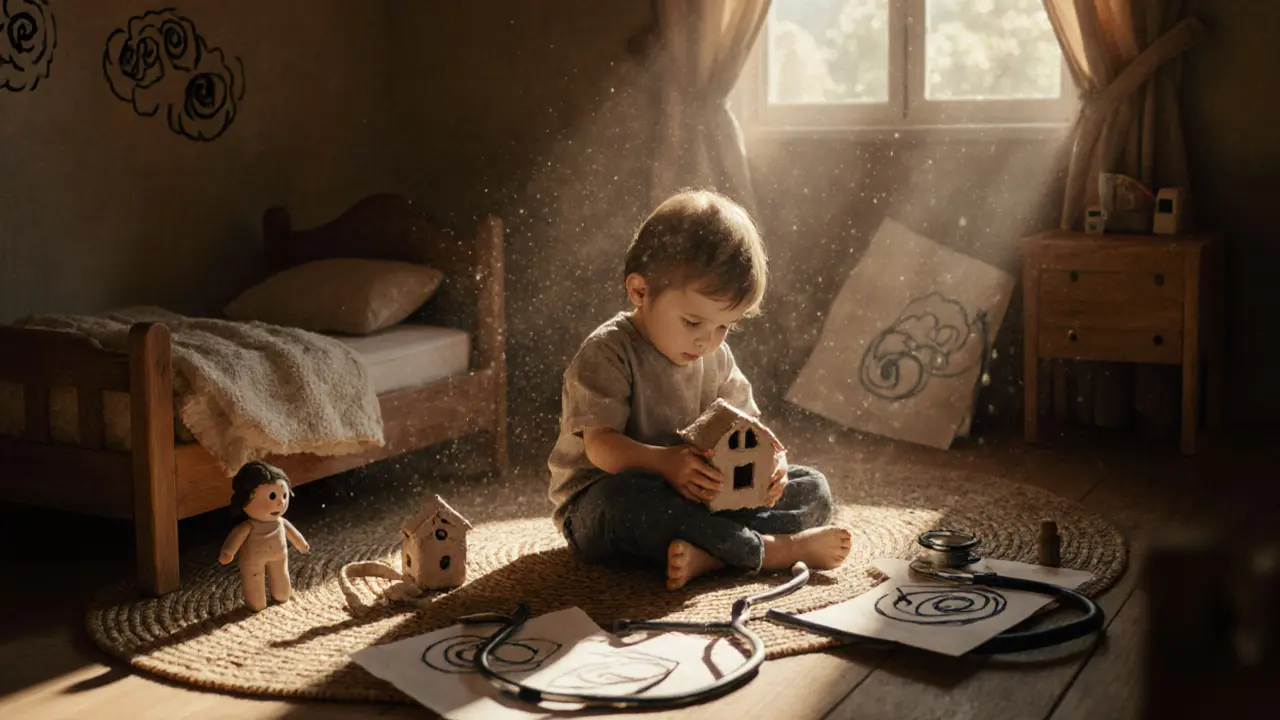Hra jako léčba: Jak hra pomáhá zvládat úzkosti, trauma a vztahové potíže
When we think of therapy, we often imagine sitting still, talking about feelings, maybe crying a little. But what if healing doesn’t always need words? hra jako léčba, proces, kdy hra slouží jako jazyk pro výraz emocí, které se slovy těžko popíší. Also known as hratelná terapie, it is a powerful, research-backed approach used with children and adults alike to process trauma, anxiety, and relationship wounds without ever saying a word. This isn’t about playing games for fun—it’s about using play as a safe doorway into the parts of us that are too scared, too hurt, or too confused to speak.
Think about a child who won’t talk after a divorce. They don’t say, ‘I’m scared I’ll be abandoned.’ But when they build a tower with blocks and knock it down over and over, that’s their story. The same goes for adults. Someone struggling with burnout might spend a therapy session arranging tiny figurines in a sand tray, creating a world where they’re invisible, trapped, or finally heard. hratelná terapie, metoda, která využívá přirozenou schopnost lidského mozku učit se a zpracovávat zkušenosti skrze hru, is not just for kids. It’s used in trauma recovery, grief work, and even couples therapy. When words fail, play speaks. And therapists trained in this method know how to listen—not to what’s said, but to what’s done.
Why does this work? Because play bypasses the brain’s defenses. When you’re anxious, your prefrontal cortex—the part that thinks logically—shuts down. But the part that plays, creates, and imagines? That stays wide awake. That’s why a person who can’t say, ‘I feel worthless,’ can draw a monster that eats their confidence, or act out a scene where they’re ignored by everyone in the room. The therapist doesn’t interpret it for them. They sit with them in it. They ask, ‘What happens next?’ And slowly, the story changes—not because someone told them to, but because their own mind found a way out.
You’ll find in the posts below real examples of how this works: from children learning to manage tics through play-based techniques, to adults using sandplay to process betrayal, to therapists using structured games to rebuild trust after infidelity. There’s no magic wand here—just deep, quiet, human work done through movement, imagination, and safety. You don’t need to be good at games. You don’t need to be a child. You just need to be willing to let something inside you speak without words.
